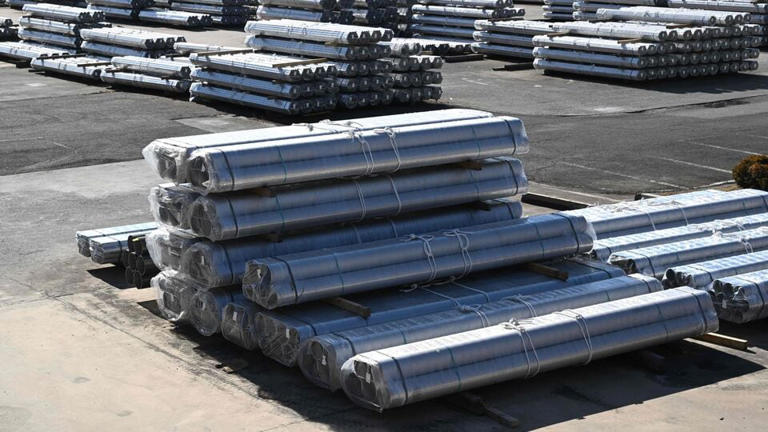India Plans Up to 15% Safeguard Duty on Steel Imports to Tackle Rising Chinese Influx
India is set to impose a safeguard duty of up to 15% on select steel imports as a measure to counter the increasing influx of shipments, particularly from China. This move comes amid global trade tensions, with the United States intensifying its tariff measures against China, Canada, and Mexico. The Directorate General of Trade Remedies (DGTR), operating under the Ministry of Commerce and Industry, has recommended the temporary tariff to shield domestic industries from a sudden rise in imports. Over the past 12 to 18 months, the surge in steel imports has turned India into a net importer, raising concerns among local manufacturers and the government.
The DGTR plays a crucial role in investigating trade-related concerns and recommending appropriate measures such as anti-dumping duties, countervailing duties, and safeguard duties. Unlike anti-dumping or countervailing duties, which target unfair trade practices, safeguard duties are implemented to provide temporary relief to domestic industries facing a surge in imports. The investigation into the need for this duty is nearing completion, and findings are expected to be released within the week. The Commerce Ministry will have the final say on implementing the safeguard duty.
The proposed duty structure will be implemented with specific price thresholds. Imports priced above these thresholds will be exempt from the additional levy. For instance, hot-rolled coils priced at or above $650–675 per tonne, hot-rolled plates at around $700 per tonne, coated steel at approximately $860–865 per tonne, and colour-coated steel at about $964 per tonne will not be subject to the safeguard duty. This strategic approach ensures that only imports priced below these limits will attract the levy, maintaining a balance between protecting domestic producers and ensuring fair trade.
The recommendation to impose a safeguard duty is a significant move, particularly as the Steel Ministry initially advocated for a higher duty in the range of 20-25%. The ministry emphasized the need to control rising imports from nations with which India has Free Trade Agreements (FTAs), including Japan, South Korea, and China. The increasing influx of steel imports has raised concerns about domestic production and pricing, prompting the government to take action. Despite repeated queries, the Commerce Ministry has not yet provided an official response regarding the final implementation of the duty.
The DGTR investigation, initiated in December following a complaint by the Indian Steel Association, focuses on imports of non-alloy and alloy steel flat products. These steel products are vital for industries such as construction, automobiles, capital goods, and electrical panel manufacturing. The sharp increase in imports has significantly impacted domestic steel manufacturers, who are facing intense competition from foreign suppliers.
According to official data from the Commerce Ministry, India has remained a net importer of steel, with imports rising by over 20% to 8.29 million tonnes during the April-January period of the current fiscal year. In comparison, the country imported 6.89 million tonnes during the same period in the 2023-24 financial year. Meanwhile, steel exports from India have seen a steep decline of 28.9%, dropping to 3.994 million tonnes compared to 5.619 million tonnes in the previous fiscal period. This sharp decline in exports and the corresponding rise in imports have further intensified concerns about India’s steel sector.
The proposed safeguard duty aims to provide relief to domestic manufacturers and prevent further deterioration of India’s steel trade balance. The government’s decision will have significant implications for both local and international markets, affecting pricing dynamics and trade relations with key steel-exporting countries. Industry experts believe that this measure, if implemented effectively, could help stabilize the domestic steel industry and curb excessive reliance on imports.
For video news coverage on this topic and more, visit our YouTube channel THE OLIGO.

